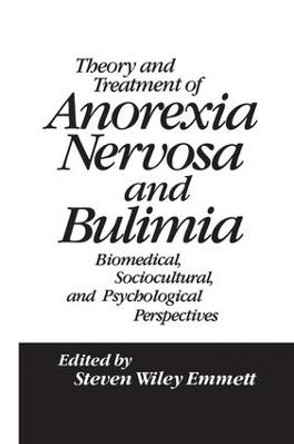Description
Early treatment literature on anorexia nervosa and bulimia reported almost exclusively on brief treatment approaches that entailed either psychopharmacological or cognitive-behavioral interventions. While this literature demonstrated that one-third of these patients were treatable with brief therapy and another one third showed improvement, the final one-third of these patients did not respond to brief interventions. Recent research indicates that this last group of patients may also suffer from significant personality disorders or Axis II co-morbidity. Considered difficult to treat, these patients require longer term, informed individual psychotherapy. Designed specifically to address the challenges of this difficult-to-treat population, this volume is the first to focus exclusively on exploring eating disorders from a psychodynamic perspective.
Chapters are written by foremost clinicians in field who examine their current views regarding the etiology and treatment of this client population from a psychodynamic perspective. Part I, focusing on aspects of the self and questions of technique, covers such topics as the role of interpretation of transference and resistance; the relationship of bulimia, dissociation, and empathy; eating disorders as displacement from psychological self to body self; boundaries in the psychotherapeutic relationship; and an interpersonal psychoanalytic technique for treatment. Part II, addressing special subpopulations, discusses the implications of treating eating disorders with patients who also exhibit masochism, borderline personality disorder, and false-self/narcissistic disorders. This section also includes a unique chapter that delves into gender identity issues in male bulimia nervosa. Part III, reflecting feminist psychodynamic perspectives, offers new ways of thinking about development, countertransference, and the role of therapist in the treatment of women with eating disorders. Part IV examines the integration of such approaches as object relations and family systems, psychodynamic and behavior therapy, and offers discussion on disorders of the self in anorexia nervosa.
Written primarily for the advanced clinician who treats clients with eating disorders, PSYCHODYNAMIC TREATMENT OF ANOREXIA NERVOSA AND BULIMIA is a valuable resource for psychiatrists, psychologists, social workers, and other mental health practitioners who work with this difficult-to-treat population. It also serves as supplementary reading for advanced graduate courses that feature a component on eating disorders.
About the Author
Craig L. Johnson, Laureate Psych. Clinic, Tulsa, Oklahoma.
Reviews
Clinically rich and psychodynamically profound....Vast clinical experience and scholarship fill these pages, thus stimulating and expanding the readers conceptual thinking.... Dr. Johnson and his fellow authors address the critical issues of the day....The pleasure I derived from reading this insightful exegesis on eating disorders came both from having my thinking challenged and from having certain of my previously inchoate notions precisely articulated....Thank you, Dr. Johnson, for providing us with such a work.
--Alan Goodsitt, M.D., Director, Eating Disorders Service, Four Winds Hospital, Chicago
- Elegantly written, well edited....Treatment emphases are trenchantly welded together to provide the richest and most readable text on the subject....The seminal textbook. --Bulletin of the Menninger Clinic, 10/21/1995
Book Information
ISBN 9780898625509
Author Craig L. Johnson
Format Hardback
Page Count 404
Imprint Guilford Publications
Publisher Guilford Publications
Weight(grams) 760g








